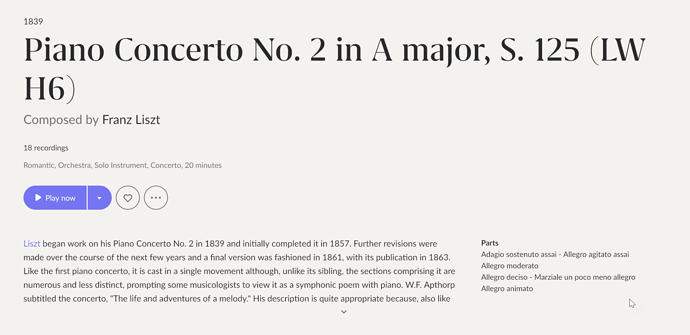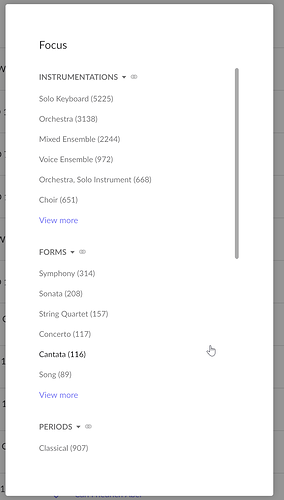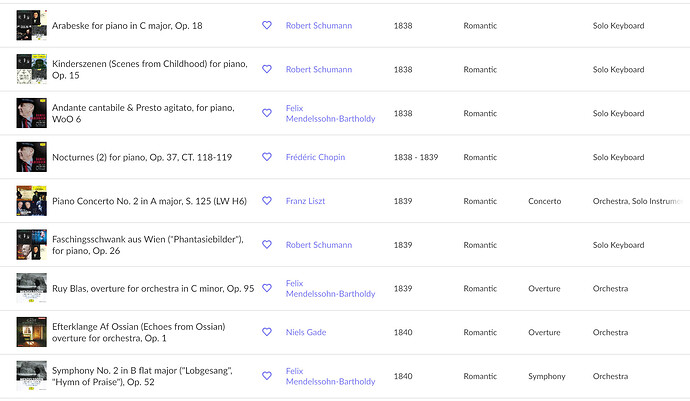There have been lots of discussions on this forum about the value of Roon for music discovery. Mostly in regard to Valence and its benefits when using a streaming service.
I am using Roon with a local library only and therefore I need to base my discovery activities on Roons library views. I’m convinced that I could do lots of discoveries within my library, without the need for a streaming service. My library is failry big…
The other day I was listening to Liszt’s Piano Concerto No.2 and I was surprised that it was composed as early as 1839. I would have put it into the second half of the 19th century.
The Composition “Homepage” shows this detail information, but I can’t use this page for discovery purposes.
What I’d like to discover would be maybe compositions from other composers that are from the same period - around 1839. I cannot click on the year.
I also cannot click on the Period “Romantic” or on the Form “Concerto”
Maybe that’s not the correct place for starting my discovery…
I’m changing to the composition browser:
This should be the right place. I’d like to start with focusing on the year of Liszt’s Concerto.
No Date to focus on.
Maybe you can use the funnel filter:
oops… But I can sort on the date. So let’s sort and scroll, how long could it take scrolling though 18K compositions… Thank God I do not need to scroll through all of them, since not all compositions metadata has a “composed” date.
Now that’s cool: Schumann’s Faschingsschwank aus Wien" was composed at the same time. let’s listen to it…
If this sounds sarcastic to you it is not by accident. I find it quite disappointing that these kind of simple discoveries are so complicated to accomplish. Unless, of course, I’m missing a workaround or some hidden features that would allow me to do it. I had to learn that lots of good features in Roon are quite hidden…
Just as an additional note: if I filter on the period “Romantic”, I get compositions from Haydn (1770s) through early Shostakovitch (1940s). That’s more than 150 years, which is not suitable at all to discover classical music of a similar style.
There is so much potential here. It’s such a shame that it is not properly used. I wouldn’t even need AI in order to use it.



